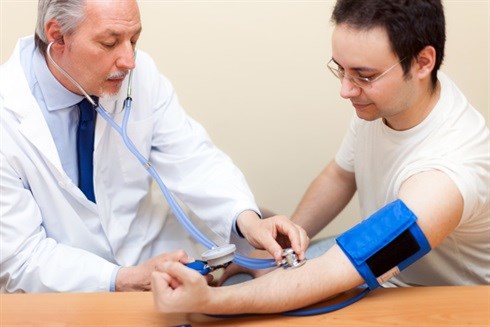
Related
Top stories




Marketing & MediaWarner Bros. was “nice to have” but not at any price, says Netflix
Karabo Ledwaba 1 day


More news

Logistics & Transport
Maersk reroutes sailings around Africa amid Red Sea constraints

















The course is European accredited and will be incorporated in the MBBS curricula of 18 medical colleges. It is aimed to build up the future diabetes health care capacity in Maharashtra. Based on its long experience in diabetes management, which began in 1957 with the development of metformin, the group seeks to raise awareness of diabetes in India by educating the public and supporting the healthcare system to prevent, diagnose and manage the condition effectively.
Merck is planning to target more than 15 000 students by the end of 2018, expanding to more African, Asian, Latin American and Middle Eastern countries with special focus on non-communicable diseases such as diabetes, cancer, thyroid dysfunction and fertility management.
Dr Stefan Oschmann, Vice Chairman and Deputy CEO of Merck said, "The group is pleased to collaborate with the University as part of our commitment to building healthcare capacity and providing sustainable access to high-quality health solutions and safe medicines in India. It marks another step in our commitment to working with governments and other stakeholders in building healthcare capacity with a focus on non-communicable diseases in various countries in Asia-Pacific, Middle East Africa and Latin America."
Prof Dr Arun Jamkar, Vice Chancellor of Maharashtra University of Health Sciences, MUHS- Nashik emphasised says, "It gives us immense pleasure to invite the stakeholders in the field of medicine and diabetes in Maharashtra In joint collaboration with DMER and Merck. This diabetes education course aims to provide guidelines and clinical practice for prevention, diagnosis and management of diabetes and its complications for medical undergraduates of the University."
Rasha Kelej, VP, Head of Global Business Responsibility and Market Development, Merck Serono says, "The lack of financial means is not the only challenge but also the scarcity of trained health care personnel capable of tackling the prevention, diagnosis and management of diabetes at all levels of the health care systems. Therefore, the group aims to address the current constraints in the health system to manage diabetes effectively and develop workable strategies for ensuring timely and appropriate management with extensive linkage and support. Enhancing the availability of trained manpower is part of our commitment to contributing towards the social and economic development of India and the rest of the Asian continent.
"The socio- economic burden of the disease can be reduced by timely intervention from trained healthcare professional as many patients can be prevented from becoming diabetics if diagnosed at early stage."
In addition to Asian universities such as Maharashtra University in India and University of Indonesia will benefit from European-accredited clinical diabetes and chronic diseases management training, which is seeking to equip them with skills to avert the diabetes and hypertension epidemic.
CAP aims at expanding the professional capacity in the areas of research and development, clinical research, supply chain integrity and efficiency, pharmacovigilance, medical education and awareness for medical and pharmacy undergraduates, physicians and pharmacists in rural areas.
The 5-year programme kicked off successfully in seven sub-Saharan countries, Kenya, Uganda, Namibia Angola, Ghana, Tanzania and Mozambique and will further expand to other Sub-Saharan and Asian countries in 2015.
As part of CAP, by end of 2015, it will reach more than 5 000 medical students, in partnership with African universities such as University of Nairobi, Makerere University, Namibia University and University of Ghana. Merck Capacity Advancement Program- CAP will kick off their third year in Africa in September 2015 aiming to reach out to more than 15000 medical undergraduates by 2018 addressing Cancer, Diabetes and Fertility management.
The programme also focuses on building research capacity and improving supply chain in order to improve patient safety in Africa.